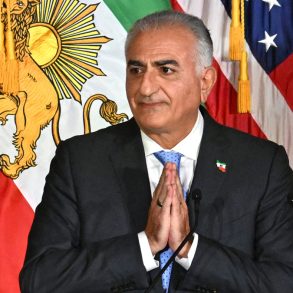On his first day back in office, President Donald Trump signed an executive order that struck at the heart of the 14th Amendment. The directive instructed agencies to deny citizenship to any child born in the United States unless at least one parent was already an American citizen or a lawful permanent resident. The White House now wants the Supreme Court to rule on whether such a measure can stand.
Trump has argued for years that birthright citizenship is a “magnet” for illegal immigration. He claims it fuels what he calls “birth tourism,” where foreign nationals travel to the United States solely so their children can be born American citizens. His administration insists that the words “subject to the jurisdiction thereof” in the 14th Amendment should exclude the children of those who entered illegally or who are here on a temporary basis. According to U.S. Solicitor General John Sauer, “the government has a compelling interest in ensuring that American citizenship—the privilege that allows us to choose our political leaders—is granted only to those who are lawfully entitled to it.”
This push has drawn legal challenges at every level. Multiple federal district courts blocked the order almost immediately, with one judge calling the effort “blatantly unconstitutional.” The Supreme Court has already taken one preliminary look at the case, narrowing the scope of nationwide injunctions but leaving the constitutional question unresolved. Now the justices are being asked to decide directly whether Trump can reshape the very meaning of citizenship.
The Constitution and Precedent
The 14th Amendment was ratified in 1868 to guarantee that formerly enslaved people would be recognized as full citizens. Its text is clear: “All persons born or naturalized in the United States, and subject to the jurisdiction thereof, are citizens of the United States.” Historians point out that this clause was deliberately written to overturn the infamous Dred Scott ruling, which had denied citizenship to Black Americans.
The Supreme Court reaffirmed this principle in United States v. Wong Kim Ark (1898), when it ruled that a child born in San Francisco to Chinese immigrant parents was a citizen by virtue of birth on American soil. That decision, according to the National Constitution Center, became the foundation of modern birthright citizenship law. As legal analyst Thomas Wolf has written, the Court has since recognized birthright citizenship as “ancient and fundamental.”
Opponents of Trump’s order stress that the Constitution leaves no room for reinterpretation on this matter. Cody Wofsy of the American Civil Liberties Union argued, “This executive order is illegal, full stop, and no amount of maneuvering from the administration is going to change that.”
Why We Break With Trump on This Issue
Normally, we support President Trump’s agenda. We have defended his efforts to restore America’s strength, push back against global freeloaders, and protect the sovereignty of the United States. But on this issue, we must part ways. Ending birthright citizenship is not just unconstitutional, it is a moral mistake that threatens to break the very ladder of opportunity that has always defined America.
America has always functioned as a society of three classes, with people moving from lower to middle to upper and, of course, back again (thuse the expression “shirtsleeves to shirtsleeves”. This dynamic mobility is what makes the American dream possible.
But today, we are witnessing the dramatic rise of the fourth class: a permanent underclass of people who live in the shadows. President Biden’s policies purposely deepened this problem. By allowing millions to cross the border but denying them lawful paths to work, his administration has effectively trapped them in a state of servitude. They labor in unregulated, exploitive conditions, unable to participate fully in the country they inhabit. To now remove birthright citizenship would lock their children into this same hopeless status, erasing the very promise that generations have relied on to climb the ladder of opportunity.
The reality is that these millions of immigrants live in legal limbo. This is a form of modern-day servitude. What sustains these people, even in such conditions, is the knowledge that their children, born here, are Americans. That hope—that their sons and daughters can rise beyond the hardships of their parents—keeps alive the promise that America has always offered.
If birthright citizenship were abolished, that hope would vanish. We would create a permanent underclass of people born here but never allowed to belong, not a fourth class but in most ways a slave class. That is not a matter of partisan politics. It is a matter of principle. America cannot be the land of freedom while also institutionalizing a group of rightless children who inherit only exclusion.
The Political Arguments Are Secondary
It is important to emphasize that we are not echoing the political arguments of the left. Their opposition to Trump on this issue is rooted in their broader agenda, often more about scoring points against the president than defending the Constitution. We do not stand with them. We stand with the plain text of the 14th Amendment and with the history of America as a nation that offers mobility across generations.
Our argument is not that Trump is wrong because his critics are right. Our argument is that America must not betray its founding promise. This country has always functioned as a three-class society where families move up from lower to middle to upper class, and down again, but with opportunity available across generations. To strip away birthright citizenship would lock generations into illegality, a grave injustice that America should never accept.
The Supreme Court’s eventual ruling will carry consequences far beyond legal theory. If the justices uphold Trump’s order, they will cement the creation of a caste of children who, through no fault of their own, are permanently excluded from belonging to the only country they know. If they strike it down, they will affirm a principle that has defined America since the 14th Amendment: if you are born here, you are one of us.
We normally support Trump. We admire his willingness to fight. But in this case, fighting in the wrong direction risks destroying the very hope that makes America exceptional. As the world’s beacon of freedom, we must protect birthright citizenship, not dismantle it. Without it, America would cease to be America.







